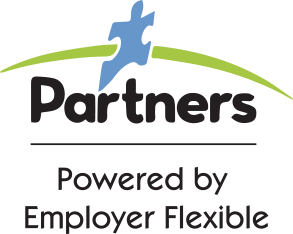Small Business Strategies to Survive Soaring Salary Inflation
Small Business Strategies to Survive Soaring Salary Inflation

A year ago the think tank the Conference Board surveyed American businesses and found that companies-- facing the gauntlet of rising inflation and a historically tight labor market – were setting aside 3.9 percent of their 2022 payroll budgets for employee raises.
While the planned 3.9 percent would have been the highest boost to employees on average since 2008, the reality as we near the finish line for 2022 is that salary inflation has soared even higher with average hourly earnings climbing by 4.7 percent for the year through October.
“Despite the slowdown in growth, the labor market remains extremely tight, with the unemployment rate at a 50-year low, job vacancies still very high, and wage growth elevated,” said Federal Reserve Chairman Jerome Powell on Nov. 2, 2022.
Putting a squeeze on both employees and employers is that the consumer price index is even more elevated than wages, sitting at 8.2 percent in September.
Is the U.S. Economy Headed for a Wage-Price Spiral?
The New York Times reported that between September and October, employee wages climbed 0.4 percent, more than the increase the month before and the fastest pace of monthly increase since July.
Powell said that average hourly earnings were “flattening out at a level that’s well above the level that would be consistent over time with 2 percent inflation … wages aren’t coming down. They’re just moving sideways at an elevated rate.”
Some fear a wage-price spiral, defined by Investopedia as where rising prices increase demand for higher wages, which leads to higher production costs and further upward pressure on prices creating a conceptual spiral.
Powell said he didn’t “think that we see a wage-price spiral. But again, it’s not something you can – you know, once you see it, you’re in trouble. So we don’t want to see it. We want wages to go up. We just want them to go up at a level that’s sustainable and consistent with 2 percent inflation.”
Biz2credit, a small business lender, says that some clients can’t help but feel they are already trapped in this wage-price spiral.
“Small businesses are finding it challenging to hire employees because of the current labor shortage, inflation is impacting workers, causing them to demand higher wages,” writes Michael Kuczkowski for Biz2credit. “The spiral is making it hard for small business owners to maintain their current level of business, much less grow.”
Inflation, Salaries on Employees and Employer's Minds
Much like letting the genie out of the bottle, small business owners know that once salary increases are given, they can not be taken away when high inflation finally ebbs.
Kathryn Mayer, writing for HR Executive, says that employers must address employees’ inflation and salary concerns.
“If they don’t, they run the risk of having distracted, stressed, and unproductive workers—and worse yet, they risk losing employees to better-paying jobs—which is especially possible in today’s hot job market,” says Mayer.
Gartner research, according to Mayer, finds that 63 percent of organizations are planning on adjusting employee wages in response to inflation.
“The No. 1 thing that employers focus on is compensation when it comes to retention,” Tony Guadagni, senior principal in the Gartner HR practice, told HR Executive. “It’s not the only thing. But it’s the biggest thing. And if you have the opportunity, if you’re capable of raising wages, you’re going to do better in terms of retaining your employees than organizations that don’t.”
5 Other Steps Small Business Owners Can Take
Straight salary increases are not a sustainable move for all businesses, especially small and medium-sized businesses that lack the deep pockets of larger companies.
Here are four other steps that small business owners can take to help with salary inflation:
- Bonuses and Performance-Based Pay Boosts: Employers can provide employees help to fight the current high inflation with bonuses that put extra money in their pockets but do not commit the business to increased salary levels moving forward. Another action is performance-based pay boosts which tie higher salaries to increased productivity. Biz2credit says this can help prevent the adverse inflationary risk of producing the same amount but paying more to do it.
- Flexible Schedules and Remote Work: Small businesses can allow employees to work remotely or on a hybrid schedule with some days away from the office which helps them cut the rising costs of commutes. Gas prices are one of the biggest drivers of inflation with employees paying for it at the pump every week. Another driver of inflation is high food costs, and employees working more from home can avoid some of the costs of eating out that often come with commutes.
- Get Creative with Benefits: While salaries get much of the focus, benefits can be a difference maker and employers need to maximize benefits for their employees to help them with inflation. Everything from discounted gym memberships, financial wellness programs, mental health resources, childcare support, student loan help, job training, and skills improvement can help put employees in a better financial position. Putting resources into benefits by small businesses can help avoid company-wide salary increases. In some cases, it is not even adding new benefits, but highlighting benefits already offered and getting employees to maximize their usage of these perks. Small businesses can also keep employees apprised of changes that can benefit them such as the IRS raising the annual health savings account (HSA) contribution limits for 2023.
- Do Not Go It Alone: Biz2credit says that now is not the time for small businesses to go it alone and that a PEO can bring fresh eyes to the situation: “If you’ve been in operation for a long time, you may no longer be able to view your company objectively. Do you need to hire more workers at higher pay, or are there ways to work better and more efficiently with fewer people who earn less?” PEOs like Partners HR can help small businesses compete against larger companies by giving them the option to offer quality benefits that may allow them to slow the pace of salary inflation.
Making Sure Your Business is a Great Place to Work
The flip side to rising employee salaries is that some companies are already cutting their workforce in anticipation of a coming recession. Simply cutting staff, however, may not be a straightforward solution that will pay long-term dividends.
Ted Kitterman of Great Places to Work says that analyzing data from companies before, during, and after the Great Recession of 2007-2009 found that companies that delivered consistently great workplace experiences suffered the smallest losses and were the quickest to rebound post-recession.
While the S&P 500 suffered a 36 percent decline in value between 2007 and 2009, companies that supported all employees gained 14 percent.
“By making sure that no employee was overlooked, these organizations beat the odds and made more money,” says Kitterman.
Contact Partners HR today to help your business beat the odds and navigate today’s tough economic conditions.



